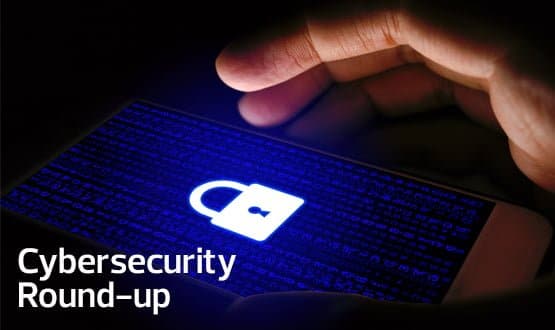Cyber security news round up
- 12 October 2018

Digital Health’s latest round-up from the cyber security world includes BlackBerry’s new quantum-resistant cryptography tools and a novel new cyber security training method devised by the MOD’s Defence Science and Technology Lab.
Go phish: scientist develop educational cyber security card game
Boffins at the Ministry of Defence’s Defence Science and Technology Lab (DSTL) have come up with a novel way of teaching staff to recognise cyber-attacks: card games.
Scientists at the MOD’s science and technology agency have developed a card game that teaches staff about some of the key open-source techniques used by hackers to target IT systems. It is meant to offer a more enjoyable and cost-effective way to raise awareness about common forms of cyber-attack that might be employed to target industrial and commercial infrastructure.
The card game can be licensed through DSTL’s Easy Access IP Portfolio.
Amazon, Apple sour over Chinese spy chip claims
Apple and Amazon have strongly refuted claims made by Bloomberg that they were hacked by Chinese spies who infiltrated their supply chains.
Bloomberg alleged that malicious chips had been planted on Chinese-made servers used by the companies that stole data once switched on.
It claimed that the servers, manufactured for US company Super Micro, were use by up to 30 US firms.
Both Apple and Amazon said there was no evidence to support Bloomberg’s report, which was based on unnamed sources. Super Micro, GCHQ, the US’s Department of Homeland Security and China’s Ministry of Foreign Affairs have all put out statements echoing Apple and Amazon’s response.
Tesco Bank billed for 2016 cyber snafu
Tesco Bank has been slapped with a £16.4m penalty for a cyber-attack in 2016 that left customers locked out of their internet banking for two days.
The Financial Conduct Authority ruled that the bank had failed to put adequate measures in place to protect customers, despite being given “a very specific warning” about vulnerabilities in the “design of its debit cards, financial crime controls and financial crime operations team”.
This allowed hackers to steal £2.3m from customers in the space of 48 hours, which Tesco Bank was forced to cover.
CEO Garry Mallon claimed the bank had since “significantly enhanced our security measures to ensure that our customers’ accounts have the highest levels of protection.”
Fujitsu goes back to school with cyber security college
Fujitsu has opened a cyber security college in the UK.
Run in association with University Technical Colleges (UTCs) in England, the UTC Cyber Group will equip 14-19 year-olds with skills required for a job in the IT security market, with the hope of addressing the shortage of cyber security expertise in UK industry.
Fujitsu is hoping to see more than 500 students come through its doors every year, reports Information Age.
Rob Norris, vice president of enterprise and cyber security at Fujitsu, said: “In a world of connected devices, and increasingly AI and machine learning, the security landscape is seeing exponential growth with attack techniques and sectors changing at an alarming rate.
“In light of recent attacks, it is especially important that we do more to help the next generation of students better understand the positive impact that cyber security knowledge can have on their lives and future careers.”
British antivirus firm celebrates $1.65bn valuation
A British cyber security firm that provides threat detection software to the NHS is now worth $1.65bn (£1.24bn) after raising $50m in its latest round of funding.
Darktrace offers machine learning-driven security software designed to actively seek out cyber nasties on IT networks and beat them back before they become an issue.
Its software was instrumental in helping stop the spread of the WannaCry virus in the NHS in 2017. The company’s headcount has ballooned by 60% in the last 12 months, standing at over 750 employees worldwide.
Darktrace’s customers now include eight major international airports, including London Gatwick and Milan-Bergamo Orio Al Serio, as well as the Science Museum Group and financial institutions AIG, AEGON, Sony Life Insurance and Ipreo.
The series E funding was led by Vitruvian Partners, with involvement from existing investors KKR and 1011 Ventures.
Nicole Eagan, Darktrace CEO, said: “The increase in our valuation in just a few months is testament to the fundamental power of our Enterprise Immune System. As we begin to see real-world attacks leveraging offensive AI, Darktrace will be indispensable in keeping defenders one step ahead.”
Beefed-up BlackBerry adds quantum cryptography tools
BlackBerry has made a move to protect its customers against the next generation of quantum computers with new cryptography tools.
The company has added capabilities to its technical inventory that enables software to be digitally stamped with “quantum-resistant” code.
When they arrive, quantum computers will be able to break traditional cryptography methods with relative ease. BlackBerry’s solution is designed to make software more difficult to crack by next-gen computers.
BlackBerry’s new tools will be available in November.
Charles Eagan, chief technology officer at BlackBerry, said: “Quantum computing will solve groundbreaking problems in healthcare, transportation, astrophysics, government, and many other fields; however, it also gives bad actors the potential to crack traditional public key crypto-systems and then attack the underlying data they protect.
“By adding the quantum-resistant code signing server to our cyber security tools, we will be able to address a major security concern for industries that rely on assets that will be in use for a long time. If your product, whether it’s a car or critical piece of infrastructure, needs to be functional 10-15 years from now, you need to be concerned about quantum computing attacks.”




